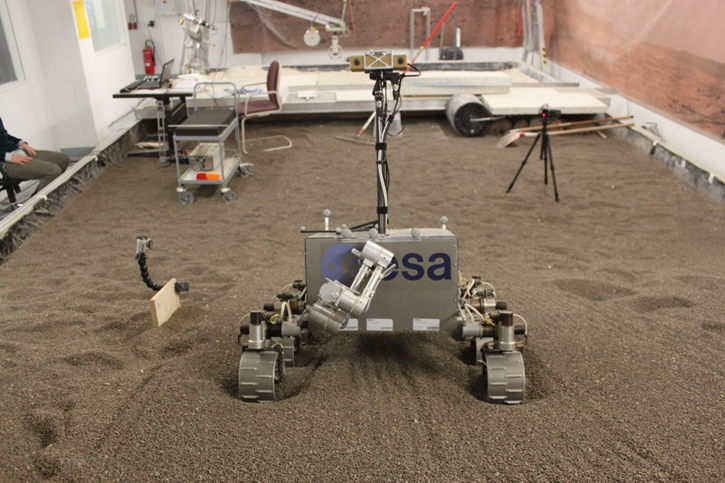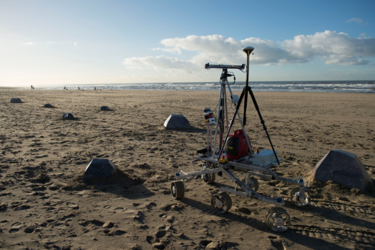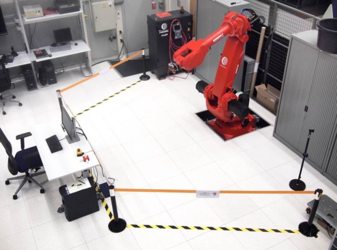Research topics
The Planetary Robotics Laboratory supports a large number of ESA and external projects. Many of the technologies intended for ESA planetary missions have been assessed, pototyped and integrated in the Lab. In fact all basic technology research in planetary robotics, commissioned by ESA for European industry and academia to design, is finally tested in here.
Support to ESA activities
Additionally the lab also supports ESA internal activities such as CDF studies or research collaboration activities with other European institutes. Currently the lab has signed a Memorandum of Understanding (MoU) with the French and German Space Agencies (CNES and DLR) and with the Robotics Institute for Research of Bremen DFKI.

Finally the lab also enables more efficient development of ESA TRP/GSTP/GSP activities by allowing to use its equipment and facilities by industrial partners in charge of the activities. Lab rover prototypes or instrumentation equipment has been provided in several ocassions.
Support to ExoMars Mission
The lab has focused over the last years on supporting the ExoMars mission with tests conducted considering the mission scenario and system requirements. As such several investigations and test campaigns have been carried out with regards to the topic of Wheel Walking and how this locomotion pattern can improve the traversability of the rover in scenarios of high slip ratio. The picture above is corresponding to one of the test campaigns conducted, in that case in DLR, in March 2015.
On the other hand, the lab has done intensive work on the topic of remote operations of a planetary rover. Several test campaigns in collaboration with CNES, ESA ExoMars and other industrial partners have been conducted (most recent ones in 2015 & 2016) where the Egress Phase of the ExoMars mission has been excercised remotely (see link above-right).
Other research done in the topic of relative and global localisation refer to the field tests conducted in the beach of Katwijk on Novemeber 2015 where several sensor data was collected for algorithms for relative localisation and a new technique for global localisation over long distances was studied as well. (see link above-right).







